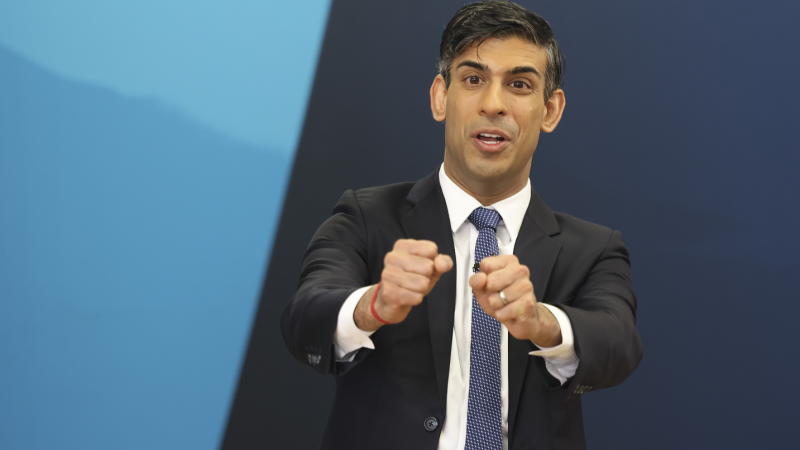Austerity has been deadly

Joseph Stalin, Mao Zedong, Pol Pot, Augusto Pinochet, Adolf Hitler and Idi Amin are just some of the rulers that history must never forget or forgive for mass murder. In pursuit of power, riches and ideological experiments they killed millions of their own citizens. A common explanation is that they were dictators and lacked effective opposition.
It is commonly assumed that neoliberal governments subject to elections, parliamentary opposition, critical press scrutiny and countervailing institutions do not engage in democidal practices. Think again. Elected government do not normally turn tanks and warplanes against their population, but they intentionally or unintentionally kill thousands of their citizens by inflicting poverty, austerity, low wages and poor healthcare. Recent history of the UK provides some evidence.
Since 2010, austerity and real wage cuts have been the policy choice of the Conservative government. At the end of June 2023, workers’ share of gross domestic product, in the forms of wage and salaries, shrank to around 50%, compared to 65.1% in 1976. The real average wage today is about the same level as in 2005. The state pension is the main source of income for majority of retirees. At 28%-30% of average earnings, it is one of the lowest in OECD countries. Even after adding private pensions, retirees fare badly. In its drive against public spending, the government reduced social security benefits by freezing their value or by increasing them by a lower rate than inflation.
The never-ending austerity has condemned millions to poverty. Out of a population of 67.7 million, 14.4 million Brits, including 4.2 million children, 8.1 million working-age adults and 2.1 million pensioners live in poverty. Poverty reduces access to good food, housing and healthcare. It incubates disease, anxiety, insecurity, health problems, and premature death.
The UK government has failed to make the required investment in healthcare. At the end of June 2023, some 7.6 million people in England alone were waiting for hospital treatment, compared to 2.5 million in 2010. With only 2.3 hospital beds per 1,000 people, the UK is ranked 23rdout of 24 European countries. Due to lack of healthcare, around 2.5 million have become chronically ill and are highly vulnerable.
The human cost of government policies is devastating. A study reported that between 2012 and 2019, government imposed austerity caused 335,000 excess deaths in England and Scotland i.e. nearly 48,000 a year. Replication of the same pattern across 13 years of Conservative rule could have caused 624,000 excess deaths.
The Marie Curie Charity estimates that in 2019, 93,000 Brits died from poverty. This includes 68,000 pensioners and 25,000 people of working age. The majority of people who die at working age have experienced poverty at some point in the five years before their death, with a substantial minority falling below the poverty line in the last two years of life. The total number of deaths from poverty in the years 2010-2023 is not known.
In 2016, the government sponsored Exercise Cygnus concluded that the National Health Service (NHS) could not cope with a flu pandemic. The government did not heed the warnings. It reduced the number of hospital beds and stock of personal protective equipment. In some areas, the number of hospital beds declined by 40%. When the Covid pandemic struck in 2020, the NHS struggled. Over 229,000 people have died, mostly the elderly and the less well-off.
Due to underfunding of the NHS, staff shortages, lack of equipment and capacity, people in the UK are less likely to survive treatable conditions, such as breast cancer and stroke, than those in other rich nations. In 2022, 23,000 people died in accident and emergency departments. In 2021 in England, 134,802 people died from cancer. The British Heart Foundation has reported that nearly 100,000 more people with cardiovascular disease than expected are dying since the start of the Covid pandemic. The reasons include inadequate healthcare facilities, as well as poor food, housing and stress.
Whilst the wealthy can buy healthcare, the less well-off can’t and ultimately pay with their lives. A study by the Times estimates that in the last 5 years, nearly 1.5 million people in England have died, or nearly 300,000 a year, whilst waiting for a hospital appointment. The numbers are 338,715 in 2022, 323,623 in 2021, 300,771 in 2020, 261,537 in 2019 and 240,740 in 2018. The deceased are typically those suffering from delays and cancellations to hospital appointments, the less well-off and people from ethnic minorities.
The above is not a comprehensive analysis but shows that government policies have intentionally or unintentionally caused civilian deaths. Some of the data overlaps, but over two million Brits have been killed by an obsession with austerity, wage cuts and destruction of public services. This is nearly 30 times the 70,000 civilian deaths caused by German air-raids during the Second World War. Yet there are no mass protests against the democidal state. Such is the obsession with neoliberal economics that even the current leadership of the Labour Party, a traditional ally of the working class, is promising more austerity, no tax rises for the wealthy and no new investment in public services. Glossy election manifestos won’t show the human cost of neoliberal policies. The future is bleak as people’s lives are being sacrificed to appease wealthy elites and gods of defunct economic theories.
Prem Sikka is an Emeritus Professor of Accounting at the University of Essex and the University of Sheffield, a Labour member of the House of Lords, and Contributing Editor at Left Foot Forward.
Image credit – Simon Dawson / UK Parliament – Creative Commons
To reach hundreds of thousands of new readers we need to grow our donor base substantially.
That's why in 2024, we are seeking to generate 150 additional regular donors to support Left Foot Forward's work.
We still need another 117 people to donate to hit the target. You can help. Donate today.



